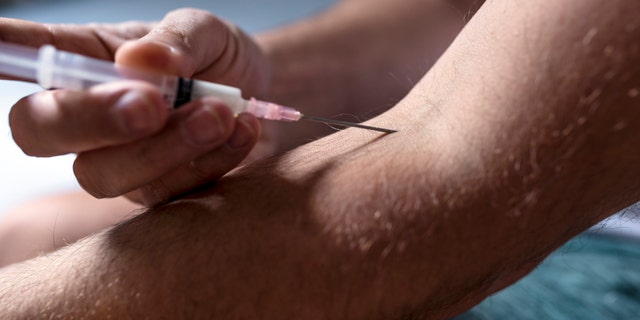7 reasons why his sperm count is low


Low sperm counts are often caused by health and lifestyle factors, which you can control.
(iStock)
The “manosphere” is in turmoil over news of declining sperm counts in men all over the world. A landmark study published in the journal Human Reproduction Update in 2017 found that sperm counts dropped by more than half over four decades of data.
JUNK FOOD HABITS IRREVERSIBLY DAMAGE SPERM BY AGE 20, STUDY CLAIMS
There’s no reason to get hysterical if you’re trying to conceive (TTC), whether you’re male or female. Low sperm counts are often caused by health and lifestyle factors, which you can control. Young men who take better care of their health will often see sperm counts rise. And if other factors are also at play, assisted reproductive technology (ART) can help a couple with male factor infertility have a child.
1) Obesity

Low sperm count is associated with having more body fat and a higher BMI (body mass index)
(iStock)
Almost 3 out of 4 men in the U.S. are overweight or obese. Low sperm count is associated with having more body fat and a higher BMI (body mass index). Obesity lowers testosterone levels, which drive sperm production. It’s not easy to lose weight, but losing weight and reducing waist size will help increase his fertility.
2) Type 2 Diabetes

Losing weight and managing his diabetes can improve testosterone levels.
(iStock)
Type 2 diabetes, which is often caused by overweight or obesity, is also linked with lower testosterone levels and infertility. Losing weight and managing his diabetes can improve testosterone levels.
3) Smoking

Smoking cigarettes has been proven to decrease fertility in men.
(iStock)
Smoking cigarettes has been proven to decrease fertility in men. It affects sperm volume, sperm count, and sperm motility, its ability to swim. Smoking also makes ART like IVF treatment less successful. So if you’re TTC and he smokes, he should stop.
4) Alcohol

Binge drinking can cause impotence and affect sperm quality.
(iStock)
Chronic alcohol abuse has been linked to infertility. What does that mean, exactly? Binge drinking can cause impotence and affect sperm quality. A recent study of young men in Denmark found that heavy drinkers had 33 percent lower sperm count and 51 percent less “normal looking” sperm than young men who had one to five servings of alcoholic drinks in a week.
5) Drug Use

Use of opiates like oxycontin and fentanyl affect hormone levels and can lead to DNA problems.
(iStock)
If you want to have a baby, it’s time for both partners to give up partying. About 33 percent of chronic pot smokers will have low sperm counts. Use of opiates like oxycontin and fentanyl affect hormone levels and can lead to DNA problems. Also, the use of anabolic steroids for bodybuilding will lower spermicide counts dramatically. The good news is, if he stops using, his sperm counts can recover.
6) Hot Tubs and Saunas

If he’ll stay out of the hot tub for a few weeks, it will usually bounce back.
(iStock)
A man’s testicles need to stay cooler than the rest of his body in order to manufacture sperm. That’s why they hang outside in the scrotum instead of being inside his body cavity. When he gets hot in a hot tub, Jacuzzi or sauna, his sperm count goes down. If he’ll stay out of the hot tub for a few weeks, it will usually bounce back.
7) Boxers vs. Briefs

This one is an easy fix!
(iStock)
After years of controversy and conflicting studies, a new study found that men who wear boxer shorts have higher sperm counts than those who wear tight briefs. Boxer wearers also have lower levels of FSH, follicle stimulating hormone, which indicates a healthier environment for sperm. That’s an easy fix!
If you’re having trouble conceiving and your partner is diagnosed with male factor infertility, there are treatments that can help in addition to lifestyle factors. ICSI combined with IVF treatment allows his sperm to be injected into an egg and fertilize it, so sperm quantity becomes less of an influence on your ability to get pregnant. If you’re under 35 and you’ve been TTC without success for a year, under 38 and trying for 6 months, or 38 to 40 and trying for 3 months, it may be time to see a reproductive endocrinologist.
Barry Witt, M.D. is the Medical Director of WINFertilty and Greenwich Fertility. He is a board-certified reproductive endocrinologist who has been offering reproductive care for more than 25 years.
Source: Read Full Article